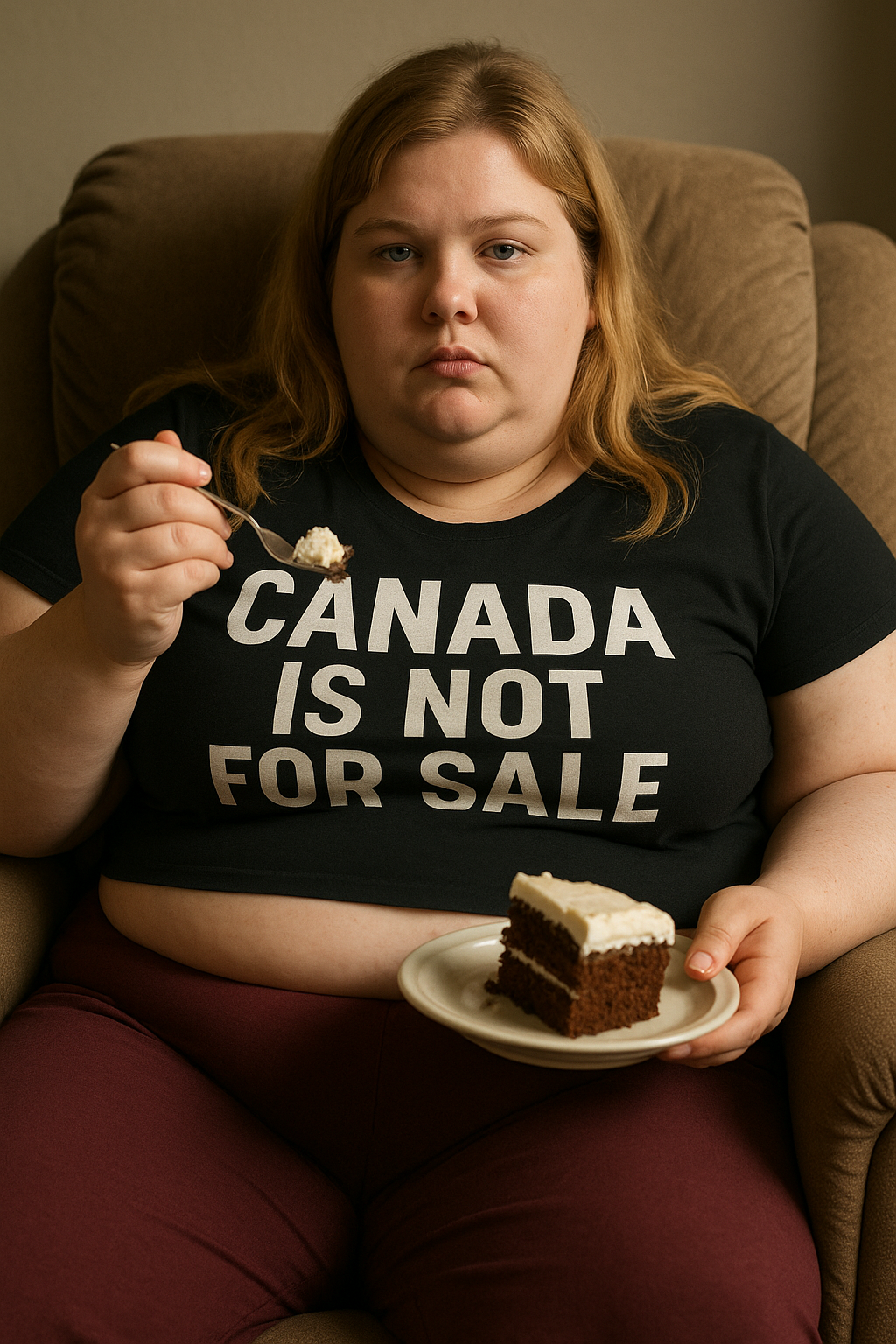
Canada is getting heavier! How Canada’s Obesity Crisis Became a Silent War on the True North
Share
Canada is getting heavier—and not just on the scale. Beneath the polite veneer of progress and policy, a slow-motion health disaster is unfolding across the country. The data is clear, and it’s brutal: nearly one in three Canadian adults is obese, and children are following close behind. The Statistics Canada numbers aren’t just figures in a report—they’re flashing red lights on the dashboard of a nation running on junk fuel, corporate convenience, and quiet denial.
A Nation Under Strain
Between 2022 and 2024, obesity rates surged to 31% among adults and 12% among children. Provinces like Newfoundland and Labrador and Manitoba now lead the pack in adult obesity, brushing 40%. Even fitness-friendly B.C. isn’t immune. What used to be the exception has become the norm. The human toll? Soaring diabetes, heart disease, and cancers—costing Canadians over $7 billion a year and shaving up to eight years off lifespans.
Scroll through social media and you’ll see the reality unfiltered: Canadians worn down by fatigue, medical bills, and guilt. “I’m 32, prediabetic, and drowning in stress,” writes one user. “It’s not just food—it’s everything.” She’s right. This isn’t just a lifestyle problem. It’s a societal failure.
How We Got Here
Blame convenience culture, the death of movement, and the tyranny of cheap calories. Canadians now average just 20 minutes of moderate activity a day—less than a tenth of what’s recommended. Sixty percent of our daily calories come from ultra-processed foods engineered to addict and cheap enough to dominate grocery aisles.
Urban density and poverty add insult to injury. In cities, green space shrinks while gym memberships rise out of reach. In rural Canada, food deserts stretch for miles, where the only open store sells chips and cola. The poorest 15% of Canadians—often single parents, students, and seniors—are twice as likely to be obese because the system rewards volume over value.
Stress seals the deal. The average Canadian household is buried under record costs—housing inflation at 6.2%, grocery prices up 9%. McGill researchers even tied cortisol, the stress hormone, to weight gain. Canadians aren’t lazy—they’re cornered.
The Real Cost
This isn’t just about waistlines. It’s about national strength. Obesity is now responsible for a quarter of chronic disease hospitalizations and has become a drag on the economy, costing us 1.2% of GDP through lost productivity. Small businesses suffer when workers are sick, and families break under the weight of preventable disease.
Even worse is the stigma. Nearly half of obese Canadians say they’ve faced discrimination at work or school. Health issues become moral failures. The system profits off the sickness it silently fuels—then shames the very people it’s broken.
Fighting Back: Beyond the Diet Myths
Real solutions require more than kale smoothies and corporate slogans. The 2025 Healthy Eating Strategy aims to limit junk food advertising and slap warning labels on sugar bombs. It’s a start—but the fight needs grit.
Ontario’s push to reintroduce daily gym classes is working, cutting child BMI rates. Quebec’s fresh-produce voucher program reduced obesity by 4% among low-income families. Vancouver’s bike lanes and Winnipeg’s community gardens are small revolutions in motion. And in the North, Indigenous communities are fighting back by returning to traditional diets—hunting, foraging, and reclaiming sovereignty over food.
Workplaces can step up too. Companies that invest in gym subsidies or meal prep partnerships see healthier, more focused employees. It’s not corporate charity—it’s survival strategy.
The Hard Truth
Canada’s obesity crisis isn’t about vanity—it’s about vitality. A strong nation cannot be built on weak bodies and broken systems. This is more than a public health issue—it’s a test of our collective willpower and values.
Dr. Arya Sharma said it best: “It’s not about blame—it’s about building systems where health is the easy choice.” The question is whether Canada has the courage to do that. Because every nation has its breaking point. And ours might just come with a side of fries.
